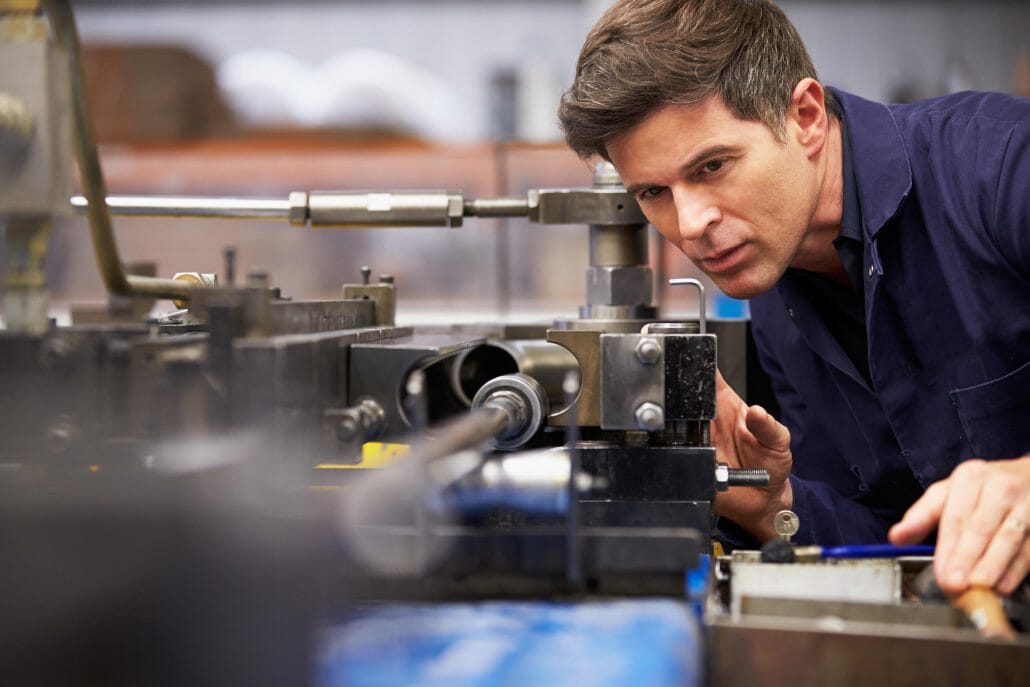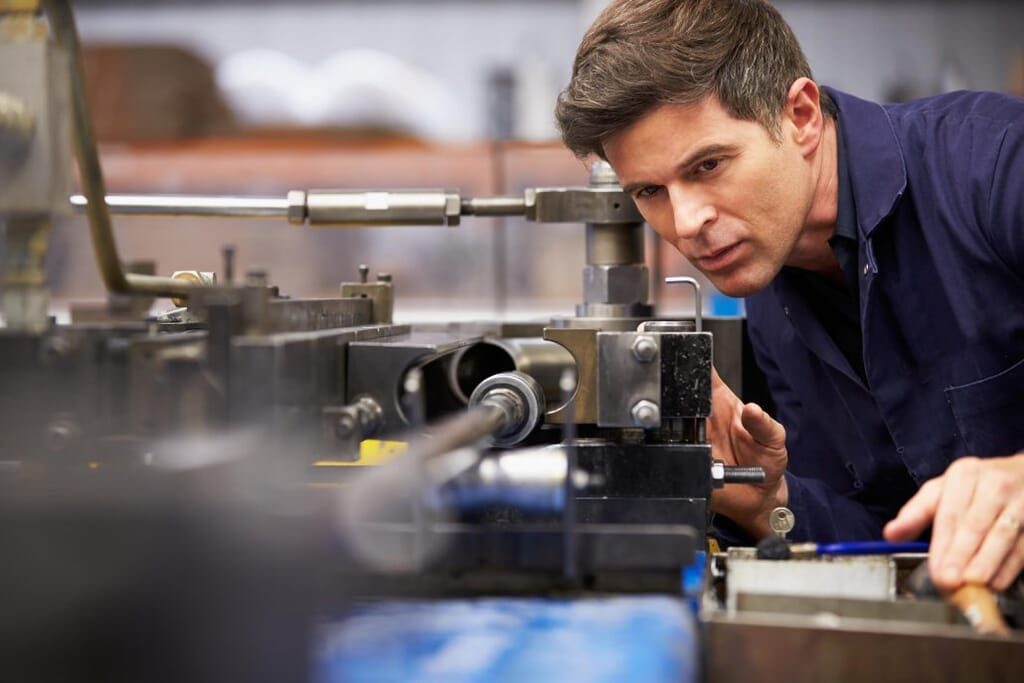Call: 01242 505 400 Or Email us

Candidate Advice
5 Signs That You Might be a Good Machinist

Are you considering a career as a computer numerical control (CNC) machinist? Do you love computer technology, have an eye for detail and are proficient at problem-solving? Here, our Recruitment Consultant, Harvey Emerson, discusses the five signs that you might be a good machinist.
Firstly, it’s important to understand exactly what a CNC machinist does. Working with CNC machinery involves creating tools and parts for various industries from metal, plastic and other materials. CNC machinists typically have to ensure their machines are set up correctly, functioning properly, and producing parts that meet the required specifications.
Number 1: Computers are your ‘thing’
If you like the challenge of troubleshooting computers when things go wrong, you’re fascinated by code and always looking to learn more, you might enjoy a career as a CNC machinist.
CNC machines are essentially tools that shape raw materials like metals and plastics into parts to exact specifications. The computers provide the instructions and specific control of these instruments, meaning they are an integral factor in the CNC machining process.
It’s essential that if you are a CNC machinist, you understand what’s going on at each step and troubleshoot any problems that may come up, which is why having solid computer skills and the drive to understand them further is key for any current and aspiring CNC machinist. A CNC machinist requires many hands-on skills but also requires brain power.
Number 2: You’re a perfectionist
It’s unacceptable to do half a job when you’re a CNC machinist. Knowing the correct rates that raw materials need to be fed into the machines or making adjustments to the tools, there’s simply no room for error in this industry. It’s a skilled trade that needs an operator’s undivided attention, so raw materials aren’t wasted, and expensive tools aren’t broken. Every step must be followed correctly.
The job requires mental and physical stamina, discipline, and close attention to detail – those skills will never be undermined.
Number 3: You love to create things
A CNC machinist plays a vital role in the creation process, where all you start with is a blank page and perhaps a small concept to get something off the ground. Taking the necessary steps from there to turn it into a physical reality can be an exciting and satisfying element of being a CNC machinist.
Number 4: You’re good at time management
There are multiple steps in the CNC machining process, and there are often opportunities to make it more efficient. Knowing how long each step may take, the load times of materials and the time needed to set up equipment are all important in finding out how long a particular job will take.
Number 5: You like working in a team
Alone you can only do so little, but when in a team, you can do some much!
Machine shops are all about collaboration. Sharing ideas and learning from those with more experience will allow you to become a flourishing CNC machinist. Though it may just be you and the machine daily, you’re all a part of one team in making something successful.
So, what sorts of positions are available in the CNC industry?
There are lots of roles within the industry that allow the cogs to turn smoothly. You could become a machine operator, design engineer, mill machinist, or maintenance technician. All in all, it’s important to know that each one plays a different role.
How can you get there?
It’s consistently recognised that when you go through an apprenticeship avenue (for example), you will have no doubt had some training to become responsible for operating a CNC machine.
CNC operator positions are often taken on by beginners or those just starting in the industry. Generally, they are responsible for loading stock material and running parts. Some complete on-the-job training after school, while others begin in operator positions after completing a CNC machining training program; it all depends on the individual and what is available to you at that time.
Does this sound like something you could do?
Being in the CNC engineering industry is a specialised and rewarding career for those with the proper skill set, with competitive salaries up to £30K.
If you’re looking for a new opportunity or to develop your CNC machinist career, we have numerous temporary and permanent positions available on our website at RE Recruitment. We work with many of the UK’s leading manufacturing, supply chain, and technical team leads to hire the best engineering talent. Our dedicated engineering consultants have a sound understanding of mechanical, electrical and electronic engineering and are on hand to help you find the perfect role.
You can apply directly through our website or contact one of our consultants if you want more information.




